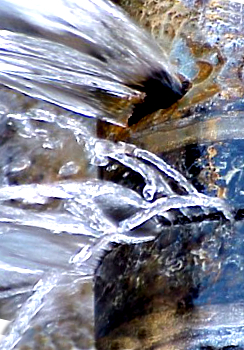WA water fix begins
 A $32 million maintenance program designed to patch some of Western Australia’s biggest water leaks has begun.
A $32 million maintenance program designed to patch some of Western Australia’s biggest water leaks has begun.
WA Water Minister Mia Davies has announced the start of the program by the WA Water Corporation, saying it would begin with Wheatbelt water pipes.
Audits have been conducted on the condition of more than 7,800 kilometres of Wheatbelt farmlands water supply pipes - both above and below ground - as part of the Goldfields and Agriculture Water Supply Scheme.
The project will now see more than 64 kilometres of pipeline replaced and around 7,500 pipeline joints strengthened by banding with steel straps welded to the outside.
It will also provide smart meters which can detect drops in water flow volumes in the pipes for all Water Corporation customers, and at critical pipe junctions across the network.
Proponents say the smart meters alone will save up to 250,000 litres of water a year.
Ms Davies said the massive WA farming water network had a history of leaks and breaks due primarily to its age.
“Some of the pipes were second hand when they were laid after World War II, they had come from other areas where they were being replaced by bigger pipes,” she told industry press Farm Weekly.
“Out of our whole water supply system some of our biggest leaks are here in the Wheatbelt farmlands supply network.
“We lose more water here than anywhere else.
“After a frost there's normally a rush of calls because the water freezes and expands which forces the pipes apart at the joints.
“In the summer the steel pipes expand in the heat and come off their saddles.
“The State Government has recognised the disruption leaks and breaks cause to customers throughout the Wheatbelt - having to go without water while pipes are repaired and then waiting for the turbid water to go through, not being able to wash clothes for a couple of days.
“Over the next three years we will work with the community and invest $32m on projects to help reduce leaks and breaks which, in turn, will reduce water supply interruptions and water loss.”
The Water Minister said that while some farmers would be disappointed more pipe was not being replaced, banding at pipe joints (the weakest point) and trouble spots would allow more funds to be spread further across the network to achieve greater results.
Ms Davies said that where possible, local people would be contracted for the work, including for painting of above-ground pipe networks once repairs and maintenance were complete.
Water Corporation Goldfields and Agricultural Region manager Sharon Broad said she had consulted with the Wheatbelt Development Commission, Northam Chamber of Commerce and Industry and Wheatbelt Business Network on how to get the most local contractors involved.
She said the steel banding straps would be made in the corporation's Northam maintenance depot, but they would try to get local welders to fix them in place.







 Print
Print